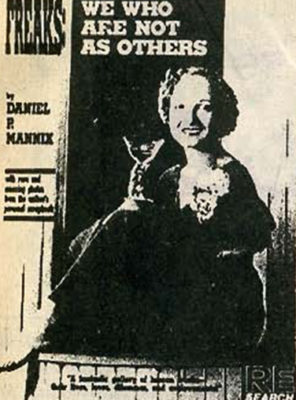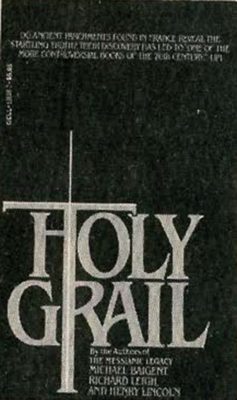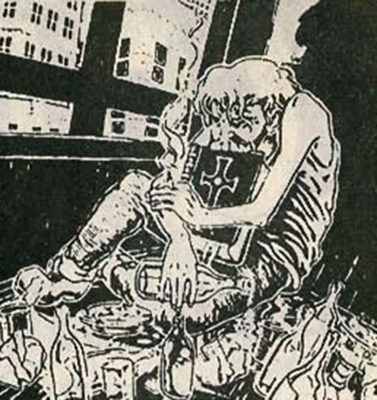Books And Literature: October 1991
Book
 Freaks
Freaks
Daniel Mannix
Written in a very personal and warm manner, Mannix’s Freaks is more a tribute to the greatest freaks the world has ever known than a voyeur’s guide to human oddity. Plan to be enthralled and possibly recognize parts of yourself in these people, or even fall in love with their personalities and quirks. Mannix recounts with total sincerity the triumphs and tragedies of this misunderstood cross-section of humanity. Many of these freaks were friends of the author or friends of friends, whose stories are told first or second hand so that the reader knows of their authenticity.
Mannix places himself somewhat in the “freak” category, having been exceptionally tall at an early age and growing to a height not normally accepted as average. How own feelings dot the narrative and give it a bare-bones honesty that an “outsider” to the world of freaks could not.
Dividing the book into sections on types of freaks, Mannix looks at the problems of being a midget or dwarf, a giant, a siamese twin, an androgynous being, a fat person, an extremely thin person or one of the “wild people.” Mixed into these categories are tales of people with alligator skin, bearded women and extra limbs or no limbs at all. How these people cope with society and come to terms either their “unnatural” qualities is the basis of this book. Not all the stories are glorious though. Mannix also tells of freaks who never find the ability to cope with their “oddities” or who are institutionalized or otherwise hidden away from an ostracized “polite” society. The “out of sight, out of mind” ethic prevails in many cases as freaks are banned from living any sort of productive life simply by nature of their outward appearance which offends “decent” people.
There is also some interesting insights for the infamous Anton LeVey, founder of the Church of Satan, who grew up around side shows and know many freaks intimately. Many freaks are associated with LeVey’s church, finding comfort in the arms of the fallen god, the one who was cast out of God’s presence as they have been cast out of the presence of “normalcy.” The Church of Satan is a haven to freaks, a place where they feel total and unequivocal acceptance.
Freaks raises some interesting questions beyond the text. What is the criterion for being considered a freak? Where is the status quo that proscribes normalcy vs. unacceptable oddity? Who among us in not a freak in one way or another? Where do freaks find safety and comfort now that freak shows have been shut down because some feel them to be “degrading” and “offensive?” And, finally, what can be done to integrate these so called “freaks” into “normal” life, building tolerance, if not acceptance of the strange and unusual?
Mannix doesn’t provide answers but, instead, gives life stories and real experiences, focusing on the freaks who have overcome their peculiarities and lead successful lives; some accumulating great fortunes or opening their own businesses.
So, if you fall into the category of one of those “who are not as others,” remember that there’s a whole world of freaks out there to keep you company.
 Holy Blood, Holy Grail
Holy Blood, Holy Grail
Michael Baigent, Richard Leigh and Henry Lincoln
Leaving aside arguments whether he really existed, is it possible that Jesus did not die on the cross? Further, could it be that Jesus married and raised a family, Is there a conspiracy to keep these and other facts about Jesus from most people? These questions and others form the central idea behind the controversial non-fiction novel, Holy Blood, Holy Grail.
other facts about Jesus from most people? These questions and others form the central idea behind the controversial non-fiction novel, Holy Blood, Holy Grail.
What started for co-author Henry Lincoln as an investigation of the shadowy history of the Knights Templar quickly evolved into a much darker and more interesting mystery. Bringing in co-authors Michael Baigent and Richard Leigh. Lincoln gradually uncovered an astonishing body of information that lead to the tiny French village of Rennes-le-Chateau and beyond.
The telling of the story behind this investigation is often as fascinating as the outlandish (?) premise. At times, it is remarked upon by the authors that it seems as if some person, or persons, were deliberately leaking information and leading them deeper and deeper into an unbelievable mystery.
Unfortunately, while the writers might have felt led along, the reader will probably feel exactly the same. While the documentation that is uncovered and revealed is incredible, at times the authors are obliged to make a leap of logic supporting their central ideas and the reader may be left skeptical. Sometimes the connection between information that Lincoln and the others find likely seem forced and may lead the reader to the conclusion that he/she is being manipulated.
Certainly the information provided by the book is mind-boggling. If only for the brief history of the Cathars and the Albigensian Crusade plus a proposed “true history” of the Knights Templar, the book is worthwhile. But in attempting to tie these disparate events together to support the alternative history of Jesus posited, the logic is often flawed.
However, unsupported or not, the story the authors tell is nonetheless compelling. If Lincoln, Leigh, and Baigent are to be believed that Prieure de Sion, a secret society that was really behind the Knights Templar, has (for centuries) zealously guarded the secret that Jesus’ bloodline still exists and that many of the European monarchs, the so-called “Merovingian dynasty” were Jesus’ progeny. If true, many of the closely-held and cherished beliefs of millions of Christians are seriously flawed. For this reason, it’s easy to understand why the novel caused such an uproar upon publication in Europe.
But still … the reader will come away feeling ultimately cheated because these suppositions, while bolstered by remarkable documentation, rely on the flimsiest of logic. The work is accessible because the material is presented in a very knowledgeable manner, never falling into dry, scholarly recitation. Ultimately, though, the book calls for too much faith from the reader.
As the inspiration for Robert Anton Wilson’s current historical Illuminatus Chronicles, Holy Blood, Holy Grail deserves to be applauded. As a believable argument to be wielded against fanatical Christians, though, the novel falls far short. Perhaps the sequel, The Messianic Legacy is more convincing.
For more from the SLUG Archives:
Record and Tape Reviews: April 1990
Concert Review: Peter Murphy and Nauvoo
